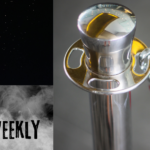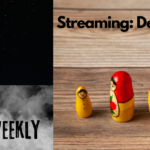At the risk of infuriating McDonald’s aficionados, this Business Intelligence Weekly competitive analysis is based on anecdotal evidence that Burger King’s products are superior.
Like VHS video players became dominant over the better Beta product during the 1980s, we argue that Burger King is the Beta of burgers.
VHS ultimately prevailed because it had a more open licensing policy which led to broader industry support and a larger selection of VHS players and tapes. In a nutshell, VHS out-marketed Beta with an inferior product.
Since the primary premise of this strategic spotlight is that a better product does not guarantee success in the market, we ask our readers to temporarily suspend their personal preferences and embrace the assumption that Burger King has the better burger.
The Better Mousetrap Theory Is Overrated
While a great product is a huge factor in driving success it can be defeated by a competitor with a superior understanding of consumer demands, targeting a broader market and delivering a deeper emotional connection in the consumer experience.
So here it is. McDonald’s beat Burger King despite having an inferior product because it’s a better marketer. McDonald’s has focused on consistent branding and catering to a broad audience looking for convenience, affordability, and comfort.
Beware Niche Marketing Pigeon Holes
Meanwhile, Burger King has positioned itself as the rebellious challenger, taking a bolder and more irreverent approach, targeting millennials, Gen X and Gen Z which is actually the silver lining in its growth trajectory.
So while Burger King’s marketing is innovative and resonating with younger audiences, McDonald’s excels at connecting with customers and evoking nostalgia with a much broader appeal.
Its advertising creative is engaging and personable with a strong emphasis on diversity, equity and inclusion whereas Burger King has resorted to attack ads against McDonald’s, such as claiming that McDonald’s burgers were 20% smaller which made the brand look jealous and petty.
Kill Them With Kindness
McDonalds, keeping the cool head of the wise market leader, ignored the attack and rolled out heartwarming campaigns like “I’m Lovin’ It.”
This iconic and long-running slogan has been a cornerstone of McDonald’s advertising which has always focused on connecting with its customers on an emotional level.
Case in point is the Happy Meal which appeals to children and families, often incorporating beloved characters and toys to create a fun and engaging experience.
McDonalds is also a master of emotional storytelling, creating ad campaigns that focus on themes of family, togetherness, and nostalgia to win hearts and minds.
The Digital Edge
It extends the brand personality online via social media to gather consumer information on attitudes and perceptions about the brand while building strong social networks around their employees, or crews, and engaging customers.
The McDonald’s marketing playbook continues to pay dividends. U.S. same-store sales rose 13.6% in 2021 and 8.1% in the first quarter of 2023 while Burger King’s U.S. same-store sales increased just 8.3% in the second quarter of 2023, but fell short of expectations in the third quarter, growing only 6.6%.
But when you consider McDonald’s is expected to generate revenue of over $24 billion in 2023 on the back of 20,000 restaurants worldwide, a few percentage points represents billions of dollars.
Good News For Weaker Products
The concept of market leadership is not solely dependent on delivering the best product. Instead, it often involves being bigger, smarter and faster rather than better.
It involves a combination of factors, including market share, brand loyalty, distribution coverage, perceived value, and the ability to influence the competitive landscape and direction of the market.
So if your company doesn’t have the best product and you’re getting beat by a competitor that does, you may be falling behind for other reasons. Think about it over your favorite burger.
SWOT Report is now Business Intelligence Weekly. The creator and journalist behind the digital publication, Andrew Ellenberg, is President & Managing Partner of Rise Integrated, an innovative studio that creates, produces, and distributes original multimedia content across digital touchpoints. To submit story ideas or ask about custom multimedia publishing, call 816-506-1257, email [email protected], or read more of his work in Forbes. To learn about his company check out this profile story.




